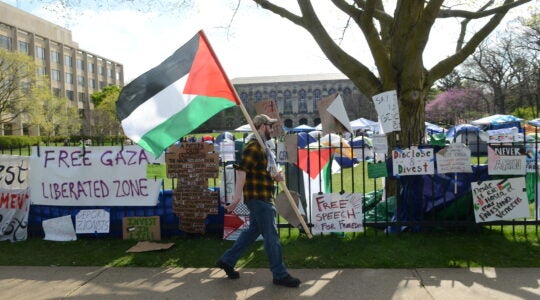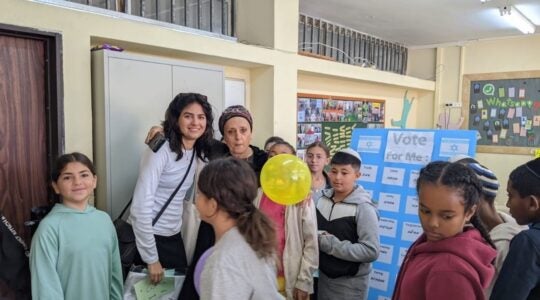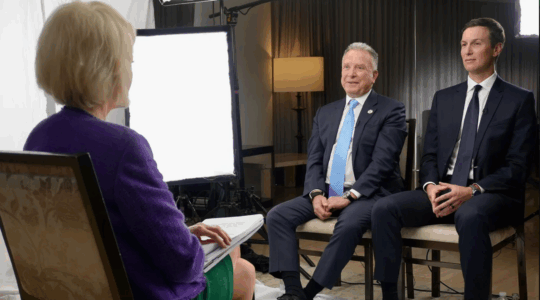Nigel Savage, the founder and executive director of Hazon, is trying to create a shared work space for young Jewish non-profits.
The idea behind the space, which would be called “Makom Chadash,” Hebrew for “New Place,” is that these non-profits could cut overhead costs by moving in under one roof and sharing office infrastructure and support staff; they could also share expenses on fund raising and marketing staff.
“Imagine that there was one funder for all the young Jewish non-profits,” Savage told me earlier this month when we sat down at the CAJE conference. “That funder would say, ‘I think you guys are great, but why am I paying for 17 copiers? Why am I paying for 17 servers and 17 different pieces of accounting software? Not only do I require you to save on the cost side, I also want to see you guys leveraging the front side cross-promoting, marketing together, staff training together and [working on] development together.'”
Savage’s Hazon currently sublets space from the American Jewish World Service in a building on W. 36 St., between Fifth and Sixth avenues in Manhattan. He is eying a floor in the same building in an area that has become a corridor for Jewish non-profits.
The floor has space for about 52 staff members and could house between five and 10 Jewish organizations, he said.
Makom Chadash is a play on Bikkurim, an incubator for startup Jewish non-profits, that essentially provided them with office space and professional support.
But Makom Chadash would be for non-profits that have made it past the start-up phase and are now established – those between 3- and 25-years-old with budgets between $200,000 and $10 million. Participating groups would have to show signs of good governance and acceptance by the organized Jewish community, Savage said.
Savage estimates that Makom Chadash would cost around $8 million over the next 10 years in build-out expenses and rent.
About $5 million of that would come in rent paid by the organizations that move in, leaving the rest, about $300,000 a year, to be raised in subsidies.
He is looking for six funders to invest $50,000 per year, each. The Chais Family Foundation has signed on as an initial investor, and Savage hopes that the UJA-Federation of New York will become a funder as well.
But Savage is under a bit of a time crunch and will have to come up with his six investors in the next two or three months in order to obtain a lease on the space, he said.
Aside from sharing expenses, Savage thinks that the space could also provide a forum for sharing ideas and thoughts and for working together.
“There are tremendous opportunities for synergy,” he said. “It will be a real indictment of the organized Jewish community if we are not able to make this happen.”
JTA has documented Jewish history in real-time for over a century. Keep our journalism strong by joining us in supporting independent, award-winning reporting.





